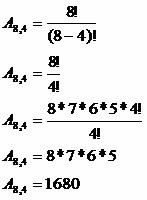Combinatorial or combinatorial analysis is the part of Mathematics that studies methods and techniques that allow you to solve problems related to counting. Widely used in studies on...
Probability theory is the branch of Mathematics that studies experiments or random phenomena and through it it is possible to analyze the chances of a given event occurring. When...
Combinatorial analysis presents methods that allow us to indirectly count the number of groupings we can make with the elements of one or more sets, taking into account...
Test your knowledge of probability with questions divided by difficulty level, which are useful for elementary and high school. Enjoy the commented resolutions of the...
Factorial is a positive integer natural number, which is represented by n! The factorial of a number is calculated by multiplying that number by all its predecessors until you reach...
Newton's Binomial refers to power in the form (x + y) n, where x and y are real numbers and n is a natural number. The development of Newton's binomial in some cases is quite simple...
Pascal's triangle is an infinite arithmetic triangle where the coefficients of the binomial expansions are placed. The numbers that make up the triangle have different properties and...
The fundamental principle of counting, also called the multiplicative principle, is used to find the number of possibilities for an event consisting of n stages. For this, the...
The probability of a certain result occurring in a random experiment is expressed through the ratio: Below are 10 easy-level solved questions on the topic. After the feedback...
Conditional probability or conditioned probability is a mathematical concept that involves two events (A and B) in a finite and non-empty sample space (S). Sample Space and...
Permutation is a counting technique used to determine how many ways there are to order the elements of a finite set. To make an exchange is to make an exchange and, in problems...


